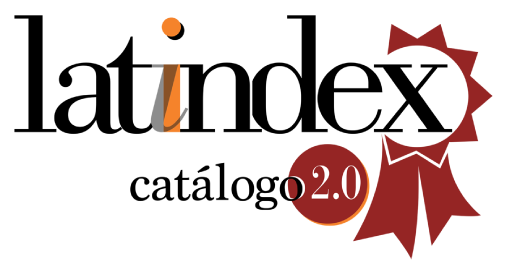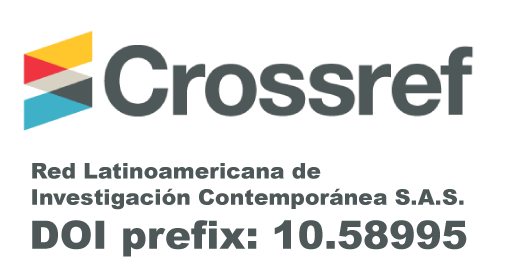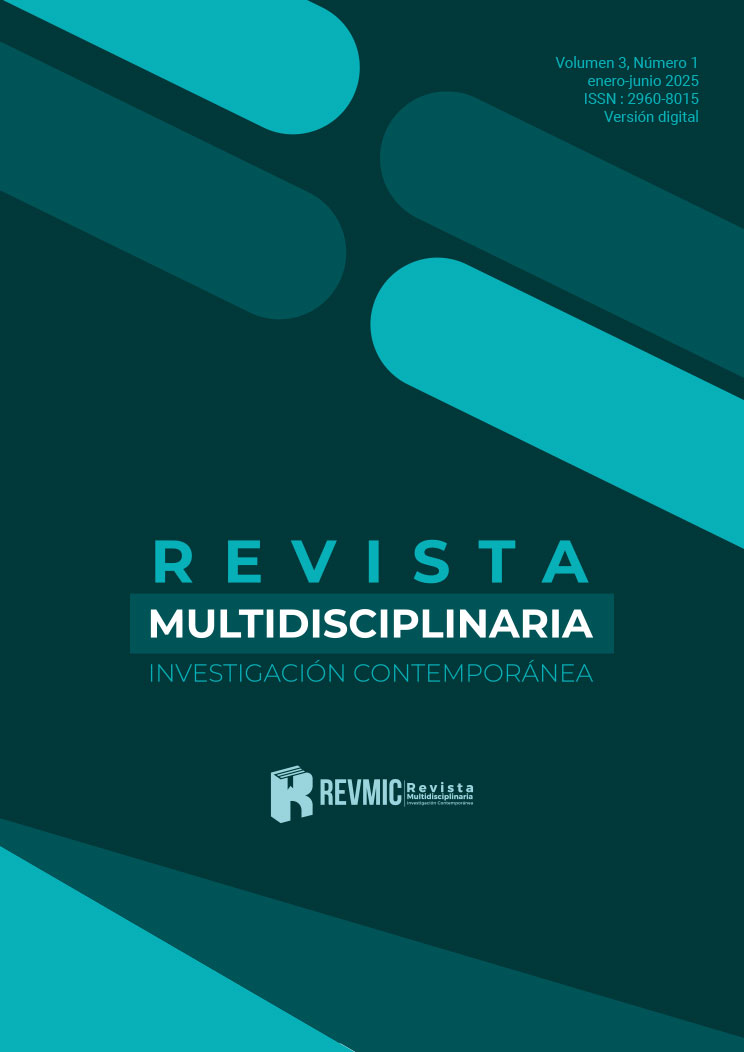La inhibición y la depresión como predictores de la adicción a la comida en población Ecuatoriana
Resumen
Antecedente: La adicción a la comida (AC) fue identificada como un problema creciente de salud pública, asociada con la obesidad y afectaciones psicológicas. Factores como la inhibición y la depresión fueron propuestos como posibles predictores de esta conducta. Objetivo: El estudio tuvo como objetivo principal evaluar un modelo predictivo de la AC en población ecuatoriana, considerando la inhibición, la depresión y la ansiedad como variables clave. Metodología: El estudio tuvo un enfoque cuantitativo con diseño no experimental, transversal y correlacional-causal. Se aplicaron la Escala de Evaluación de Funciones Ejecutivas (EFECO), la Escala de Ansiedad y Depresión de Goldberg (GADS) y la Escala de Adicción a la Comida (YFAS) a 236 estudiantes de la Universidad Católica de Cuenca, seleccionados mediante muestreo no probabilístico por conveniencia. Resultados: Los análisis estadísticos revelaron que la inhibición fue un predictor significativo de la AC, mientras que la depresión no tuvo un efecto directo. La ansiedad mostró una correlación moderada con la AC, aunque su impacto predictivo fue menor en comparación con la inhibición. Además, el 24.2% de los participantes presentaron indicios de AC, con mayor prevalencia en mujeres. Discusión: Los resultados destacaron el papel de la inhibición en la AC, sugiriendo que los déficits en el control de impulsos pudieron aumentar la vulnerabilidad a conductas alimentarias compulsivas. Estos hallazgos subrayaron la importancia de desarrollar intervenciones dirigidas a fortalecer el autocontrol como estrategia de prevención y tratamiento.
Descargas
Referencias
- Adams, R. C., Sedgmond, J., Mmaized, L., Chambers, C. D., & Lawrence, N. S. (2019). Food addiction: Implications for the diagnosis and treatment of overeating. Nutrients, 11(9), 11-36. doi:https://doi.org/10.3390/nu11092086 DOI: https://doi.org/10.3390/nu11092086
- Aloi, M., Rania, M., Rodríguez Muñoz, R. C., Jiménez Murcia, S., Fernádez -Aranda, F., De Fazio, P., & Segura -García, C. (2017). Validation of Italian versionof the Yale Food Adiction Scale 2.0 (I-YFAS2.0) in a sample of undergraduate students. EatWeightDisor, 22, 527-533. doi:https://doi.org/10.1007/s40519-017-0421-x DOI: https://doi.org/10.1037/t66471-000
- Aydmune, Y., & Lipina, S. (2018). efiniciones y métodos de entrenamiento de la inhibición en la niñez, desde una perspectiva neuropsicológica. . Retrieved from https://www.redalyc.org/journal/3334/333454618006/html/ DOI: https://doi.org/10.32348/1852.4206.v9.n3.16872
- Barriguete Melendez, J. A., Pérez Bustinzar, A. R., De la Vega Morales, R. I., Chávez Peón, P., & Rojo Moreno, L. (2017). Validation of the Hospital Anxiety and Depression Scale in Mexican population with eating disorders. Revista mexicana de trastornos alimentarios, 123-130. Retrieved from https://www.scielo.org.mx/pdf/rmta/v8n2/2007-1523-rmta-8-02-00123.pdf DOI: https://doi.org/10.1016/j.rmta.2017.05.001
- Bernadette, P., & Conner, B. (2017). Impulsivity and emotion dysregulation as predictors of food addiction. Elsevier, 9-14. doi:https://doi.org/10.1016/j.eatbeh.2015.06.007. DOI: https://doi.org/10.1016/j.eatbeh.2015.06.007
- Bourdier, L., Orri, M., Carre, A., Gearhardt, A., Romo, L., Dantzer, C., & Berthoz, S. (2018). Are emotionally driven and addictive-like eating behaviors the missing links between psychological distress and greater body weight? Appetite, 536-546. doi:https://doi.org/10.1016/j.appet.2017.10.013 DOI: https://doi.org/10.1016/j.appet.2017.10.013
- Da Silva Júnior, A. E., De Lima Macena, M., De Oliveira, A. D., Praxedes, D. R., De Oliveira Maranhão Pureza, T. M., de Menezes Toledo Florêncio, T. M., . . . Bueno, N. B. (2022). Prevalence of food addiction and its association with anxiety, depression, and adherence to social distancing measures in Brazilian university students during the COVID-19 pandemic: a nationwide study. Eating and weight disorders : EWD, 27(6), 2027-2035. doi:https://doi.org/10.1007/s40519-021-01344-9 DOI: https://doi.org/10.1007/s40519-021-01344-9
- Donovan, C. (2021). Control inhibitorio y regulación emocional: características, diferencias y desarrollo en la etapa escolar. Chair of Neuroeducation UB-EDU1ST, 37-42. DOI: https://doi.org/10.1344/joned.v1i2.32758
- Escrivá Martínez, T., Galiana, L., Herrero, R., Rodríguez Arias, M., Fernández Aranda, F., Baños, R. M., & Gearhardt, A. N. (2023). Food addiction and its relationship with other eating behaviours among Spanish university students. Journal of Eating Disorders, 11(60), 1-14. doi:https://doi.org/10.1186/s40337-023-00772-5 DOI: https://doi.org/10.1186/s40337-023-00772-5
- Espín, M., & Vargas, A. (2023). Trastornos de la conducta alimentaria: Factores psicológicos, socioculturales y neurobiológicos. Editorial PsicoPress.
- Fletcher, C. P., & Kenny, P. J. (2018). Food addiction: A valid concept? Neuropsychopharmacology, 43(1), 1-8. doi:https://doi.org/10.1038/s41386-018-0203-9 DOI: https://doi.org/10.1038/s41386-018-0203-9
- Gearhard, A. N., Schulte, E. M., & Potenza, M. N. (2018). Relationship between food addiction and other disorders: What is known and what needs to be studied. Current Diabetes Reports, 18(12), 135-14. doi:https://doi.org/10.1007/s11892-018-1077-9
- Granero, R., Hilker, I., Agüera, Z., Jiménez Murcia, S., Sauchelli, S., Islam, M. A., . . . Fernández Aranda, F. (2020). Food addiction in a Spanish sample of eating disorders: DSM-5 diagnostic subtype differentiation and validation data. European eating disorders review : the journal of the Eating Disorders Association, 22(6), 389-396. doi:https://doi.org/10.1002/erv.2311 DOI: https://doi.org/10.1002/erv.2311
- Harrel, F. E. (2015). Regression modeling Strategies: with applications to the linear models,logistic and original regression and survival analysis (2 ed.). Cham Springer . DOI: https://doi.org/10.1007/978-3-319-19425-7
- Idini, E., Barceló Soler, A., Navarro Gil, M., Paredes Carreño, P., Pérez Tausia, D., & García Campayo, J. (2021). Trastornos de la conducta alimentaria, experiencias adversas vitales e imagen corporal: Una revisión sistemática. Journal of Psychopathology and Clinical Psychology, 26(3), 217-235. doi:doi: 10.5944/rppc.28064 DOI: https://doi.org/10.5944/rppc.28064
- Lavielle, P., Rita, A., Gómez Díaz, R. A., & Wacher, N. H. (2023). Food addiction behavior in patients with newly-diagnosed type 2 diabetes. Gaceta Médica de México, 426-433. doi:https://www.scielo.org.mx/pdf/gmm/v159n5/2696-1288-gmm-159-5-426.pdf DOI: https://doi.org/10.24875/GMM.23000217
- Linardon, J. (2018). Rates of abstinence following psychological or behavioral treatments for binge-eating disorder: Meta-analysis. International Journal of Eating Disorders, 5(18), 785-797. doi:doi:10.1002/eat.22897 DOI: https://doi.org/10.1002/eat.22897
- Lombardo, M., Feraco, A., Armani, A., Camajani, E., Gorini, S., Strollo, R., . . . Bellia, A. (2024). Gender differences in body composition, dietary patterns, and physical activity: insights from a cross-sectional study. Frontiers in nutrition, 11, 141-147. doi:https://doi.org/10.3389/fnut.2024.1414217 DOI: https://doi.org/10.3389/fnut.2024.1414217
- Lucas Vera, K. N., Maldonado Mero, G. L., & Murillo Zavala, A. M. (2023). Conductas adictivas y prevención en adolescentes de Ecuador. Journal Scientific MQR Investigar, 294-313. doi:https://doi.org/10.56048/MQR20225.7.4.2023.294-313 DOI: https://doi.org/10.56048/MQR20225.7.4.2023.294-313
- Ortiz Ortiz, M. F., & Vásquez de la Bandera Cabeza, F. (2024). Impulsividad y conductas alimentarias de riesgo en estudiantes univeritarios. . Revista Científica De Salud BIOSANA, 4(5), 75-86. doi:https://doi.org/10.62305/biosana.v4i5.289 DOI: https://doi.org/10.62305/biosana.v4i5.289
- Pascual, A., & Conejero, S. (2019). Regulación emocional y afrontamiento: Aproximación conceptual y estrategias. Retrieved from https://www.redalyc.org/journal/2430/243058940007/html/
- Pivarunas, B., & Conner, K. (2019). Depression and food addiction: A meta-analysis. Journal of Behavioral Addictions, 8(1), 3-9.
- Polanco Carrasco, R., Rivano, N., Montenegro, C., Sepúlveda, J., Morales, C., Retamal, K., & Rojas Jara, C. (2020). Adicción a la comida: Una revisión sobre el concepto, sus características y medición. Cuadernos de Neuropsicología, 14(1), 142-151. doi:https://doi.org/10.7714/CNPS/14.1.214
- Ramiro Díaz, A., Ramos Galindo, E., & Mendoza Perandrés, P. (2021). Adicción a la comida y estrés. Revista Científica Sanitaria Sanum, 6(1), 80-93. Retrieved from https://revistacientificasanum.com//wp-content/uploads/Vol6n1/Vol6n1-Articulos-PDF/sanum_v6_n1_a8.pdf
- Ramos Galarza, C., Bolaños Pasquel, M., Martínez, P., Martínez Suárez, P., & Jadán Guerrero, J. (2019). La Escala EFECO para valorar las funciones ejecutivas en formato de auto-reporte. Semantic Scholar, 1-11. doi:https://doi.org/10.21865/RIDEP50.1.07 DOI: https://doi.org/10.21865/RIDEP50.1.07
- Reivan Ortiz, G., Pineda García, G., & León Parias, B. (2019). Psychometric properties of the Goldberg Anxiety and Depression Scale (GADS) in Ecuadorian population. International Journal of Psychological Research, 12(1), 1-8. doi:https://doi.org/10.21500/20112084.3745 DOI: https://doi.org/10.21500/20112084.3745
- Rivera Medina, C., Briones Urbano, M., De Jesús Espinosa, A., & Toledo López, Á. (2020). Eating Habits Associated with Nutrition-Related Knowledge among University Students Enrolled in Academic Programs Related to Nutrition and Culinary Arts in Puerto Rico. Nutrients, 12(5). doi:https://doi.org/10.3390/nu12051408 DOI: https://doi.org/10.3390/nu12051408
- Romero Blanco, C., Hernández Martínez, A., Parra Fernández, M. L., Onieva Zafra, M. D., Prado Laguna, M. C., & Rodríguez Almagro, J. (2021). Food addiction and lifestyle habits among university students. Nutrients, 13(4), 1-11. Retrieved from https://doi.org/10.3390/nu13041352 DOI: https://doi.org/10.3390/nu13041352
- Sabatier, C., Restrepo Cervantes, D., Moreno Torres, M., Hoyos de los Rios, O., & Palacio Sañudo, J. (2017). Emotion Regulation in Children and Adolescents: concepts, processes and influences. Psicología desde el Caribe, 34(1), 2-24. DOI: https://doi.org/10.14482/psdc.34.1.9778
- Schulte, E. M., Jacques Tiura, A. J., Gearhardt, A. N., & Naar, S. (2018). Food addiction prevalence and concurrent validity in African American adolescents with obesity. Psychology of addictive behaviors : journal of the Society of Psychologists in Addictive Behaviors, 32(2), 187-196. doi:https://doi.org/10.1037/adb0000325 DOI: https://doi.org/10.1037/adb0000325
- Soria Salas, I. (2021). Eating Disorders, an Addiction ? Revista Digital de Medicina Psicosomática y Psicoterapia, 1(1), 1-24.
- Valdés Miramontes, E. H., Enciso Ramírez, M. A., Fonseca Bustos, V., & Pineda Lozada, J. E. (2022). Obesity, energy intake and eating behavior: A review of the main factors involved. Revista mexicana de trastornos alimentarios, 10(3), 308-320. doi:DOI: https://doi.org/10.22201/fesi.20071523e.2019.2.563 DOI: https://doi.org/10.22201/fesi.20071523e.2019.2.563
- Vindas Smith, R., Vargas Sanabria, D., & Brenes, J. C. (2022). Consumo de alimentos altamente procesados y de alta palatabilidad y su relación con el sobrepeso y la obesidad. Scielo, 19(2), 1-15. DOI: https://doi.org/10.15517/psm.v19i2.48097
- Vladés Moreno, M. I., Rodríguez Márquez, M. C., Cervantes Navarrete, J. J., Camarena, B., & De Gortari, P. (2016). Spanish translation of the Yale Food Addiction Rating Scale and its evaluation in Mexican population: A factorial analysis. Salud Mental, 39(6). doi:https://doi.org/10.17711/SM.0185-3325.2016.034 DOI: https://doi.org/10.17711/SM.0185-3325.2016.034
Publicado 2025-04-19
Palabras clave
- Adicción a la comida, inhibición, depresión, regulación emocional, conducta alimentaria
Número
Sección
Derechos de autor 2025 Los autores que publiquen en la revista Multidisciplinaria Investigación Contemporánea aceptan los siguientes términos: 1. Los autores mantienen sus derechos de autor (copyright) y otorgan a la revista Multidisciplinaria Investigación Contemporánea el derecho de la primera publicación de su trabajo, bajo una licencia Creative Commons Attribution 4.0. Esta licencia permite que terceros utilicen el contenido publicado, siempre que se mencione la autoría y la primera publicación en esta revista. 2. Los autores pueden establecer acuerdos adicionales para la distribución no exclusiva de la versión publicada de su artículo en otros lugares, como repositorios institucionales, siempre y cuando se indique claramente que el trabajo fue publicado por primera vez en esta revista. 3. Los autores conservan sus derechos de autor (copyright) y garantizan a la revista Multidisciplinaria Investigación Contemporánea el derecho a publicar el manuscrito a través de los canales que considere apropiados. 4. Se permite y se recomienda a los autores compartir su trabajo en línea (por ejemplo, en repositorios institucionales o páginas web personales), una vez que el manuscrito haya sido aceptado para su publicación. Esto puede conducir a intercambios productivos y a una mayor y más rápida citación del trabajo publicado.

Esta obra está bajo una licencia internacional Creative Commons Atribución 4.0.




















